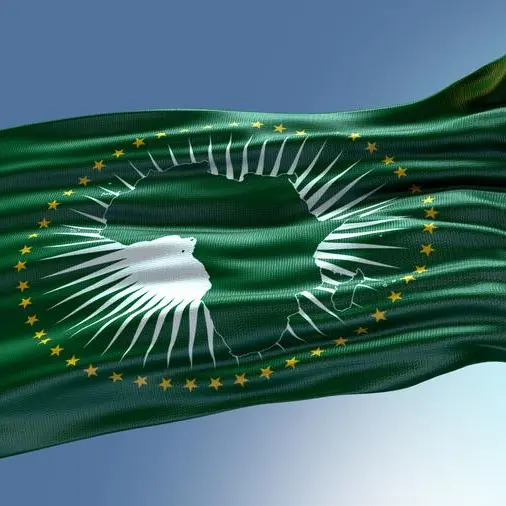PHOTO
By Angela Simpson and Lydia Shadrach-Razzino, Partners and Co-heads of the Corporate/M&A Practice, Baker McKenzie Johannesburg
Private markets in sub-Saharan Africa (SSA) have seen a continuous rise in activity since the COVID 19 pandemic. The latest AVCA Private Capital Activity Report 2022 revealed that USD 7.6 billion of private capital was invested in 2022, resulting in a 3% growth in deal value across the continent last year, after a similarly upbeat 2021. According to the report, 37% of the deal volume came from multi-region investments.
Challenges, risks and resilience
This resilience is despite the impact of numerous crises over the last couple of years, especially the looming global recession, supply chain disruptions and soaring energy prices. These factors have led to fears that we could be entering an extended period of high inflation and poor economic growth, but for private equity investors, challenging periods can also provide opportunities for access to value. While not immune to market challenges, the PE market has the resilience to survive and thrive.
On the positive side, the high amounts of available capital mean that fund managers have had more to deploy in a better value environment. The private sector has a remarkable capacity to adapt to changing economic conditions and capitalize on new opportunities. This is boosted by the fact that, to a large extent, risk management has already been factored in. According to Deloitte’s Private Equity Review 2022, 41% of PE firms in South Africa have prioritized risk management in portfolio companies, and 14% of private equity firms in the country said they would focus on bolt-on and tuck-in acquisitions to augment their portfolio companies.
Exits
The general consensus is that exits in the African market might take a little longer going forward, and the fund life of a typical vehicle might need to be extended as managers hold assets a little longer to turn the time and growth into a premium. We have not seen many IPOs recently, and this is impacted by the cyclical nature of the market. The recent AVCA report details how private capital investors achieved 82 full exits in 2022, the highest number ever recorded in a single year on the continent. Another recent AVCA survey showed that LPs see opportunism in the PE market in Africa for the medium- to long-term, and more than 90 percent are hopeful that returns in Africa over the next few years will be similar to those in other emerging markets.
Take-privates
Take-privates are also expected to increase in popularity in 2023. There have been a number of delistings from the Johannesburg Stock Exchange in the past 18 months, and this trend will likely continue. According to the AmaranthCX database of South African company listings and delistings, South Africa has been averaging about 25 delistings a year. This, however, also presents a good opportunity for PE companies as they can take over and delist struggling companies. Taking a longer-term view, PE sponsors can work with the management team of a delisted company to transform it, using innovative methods to create a stronger and more resilient company, removing the burden of reporting requirements and the market spotlight.
Adaptability in financing
Increasing inflation and rising rates have also resulted in a decrease in the availability of cheap debt financing. Fund managers are having to generate organic growth and are looking at driving a real improvement in earnings before interest, taxes, depreciation, and amortization (EBITDA). Add-on and buy-and-build strategies are also proving popular because they are helping to mitigate the higher valuations that may have been paid for the acquisition.
There has also been an increase in direct lending, with investors seeking to partner with lenders that can provide deal certainty for acquisitions. However, direct lending hold sizes have been reduced, which has required that financing structures be adapted to facilitate longer-term deals. Other innovative financing methods include permanent capital vehicles, which result in a longer fund life and enable PE firms to hold assets for longer, something that aligns well with the longer holding period often seen in African portfolio companies.
Blended finance is another fundraising avenue that has risen in popularity, and it means that investors can use catalytic funding such as grants to mobilize private sector investment. According to Convergence, SSA has been the most targeted region for blended finance transactions to date, representing 33 percent of blended finance transactions launched in 2017–2019 and 43 percent of the market historically.
Another factor that has mitigated the pandemic’s impact on PE activity in Africa is the composition of the limited partner base of firms operating on the continent, where development finance institutions (DFIs) continue to play a significant role. We have also seen increasing interest in and appetite for start-ups among DFIs, with some pretty edgy new ventures attracting their attention.
DFIs also continue to be the main providers of long-term infrastructure finance in Africa. Local and regional banks, specialist infrastructure funds, and private equity and debt firms are stepping in to collaborate with DFIs and access returns. DFIs can shoulder political risk, access government protections in a way that others can’t, enter markets others can’t, and are uniquely capable of facilitating long-term lending. Multi-finance and blended solutions are therefore expected to grow in popularity as a way to de-risk deals and support a broader ecosystem of lenders.
Resilience in sustainability
In terms of preparing for future market resilience, there is a growing focus among PE investors on green, low-carbon, and sustainable initiatives in Africa. Environmental, social, and governance (ESG) have been incorporated into PE funds’ general investment considerations for several years now, but it’s fair to say that these are no longer nice-to-haves. Energy efficiency, community healthcare, staff training and qualifications, greenhouse gas emissions, the highest standards of governance and best business practices, inclusion and diversity, social impact, and litigation risks are some factors they have been considering. Alongside the increased focus of equity investors on ESG, some lenders are also prescribing particular ESG principles that a company must meet in order to receive funding.
It appears that the PE sector is shining in Africa as we head into the second half of 2023 and investments in the sector are playing a catalytic role in terms of sustainable growth and investment on the continent. The Deal Leaders International report was optimistic about the M&A market in SSA, saying that foreign direct investment would increase in the next few years, despite the global economic recession. However, current economic challenges have required resilience, adaptability and agility from the PE market, leading to changes in the structure and length of deals, the implementation of new financing methods, effective risk management, and an increasing focus on ESG.
Copyright © 2022 AfricaBusiness.com - All materials can be used freely, indicating the origin AfricaBusiness.com Provided by SyndiGate Media Inc. (Syndigate.info).





















